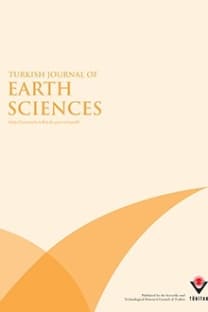Devitrification of Volcanic Glasses in Konya Volcanic Units, Turkey
The study area is composed of volcanic, sedimentary and volcano-sedimentary units, which are exposed south and southwest of the city of Konya. XRD analysis indicates that the volcanic units contain halloysite, kaolinite, smectite, illite and sepiolite type clay minerals and opal-CT, feldspar, quartz, minamiite and jarosite type non-clay minerals. SEM studies show that volcanic glasses, which are the main component of the volcanic units, appeared as curviplanar, vesicular-planar and in highly fractured shapes. Fractures and dissolution voids of the volcanic glasses are generally filled by hexagonal kaolinite, fibrous halloysite and smectite. Mineralogical and micromorphological observations indicate that clay minerals were neoformed by hydration of volcanic glasses. Neoformation of these minerals was probably controlled by the different chemical composition of the volcanic glasses in addition to the presence of feldspar.
Anahtar Kelimeler:
Clay Minerals, Feldspar, Devitrification, Volcanic Glass, Konya, Turkey
Devitrification of Volcanic Glasses in Konya Volcanic Units, Turkey
The study area is composed of volcanic, sedimentary and volcano-sedimentary units, which are exposed south and southwest of the city of Konya. XRD analysis indicates that the volcanic units contain halloysite, kaolinite, smectite, illite and sepiolite type clay minerals and opal-CT, feldspar, quartz, minamiite and jarosite type non-clay minerals. SEM studies show that volcanic glasses, which are the main component of the volcanic units, appeared as curviplanar, vesicular-planar and in highly fractured shapes. Fractures and dissolution voids of the volcanic glasses are generally filled by hexagonal kaolinite, fibrous halloysite and smectite. Mineralogical and micromorphological observations indicate that clay minerals were neoformed by hydration of volcanic glasses. Neoformation of these minerals was probably controlled by the different chemical composition of the volcanic glasses in addition to the presence of feldspar.
Keywords:
Clay Minerals, Feldspar, Devitrification, Volcanic Glass, Konya, Turkey,
- ISSN: 1300-0985
- Yayın Aralığı: Yılda 6 Sayı
- Yayıncı: TÜBİTAK
